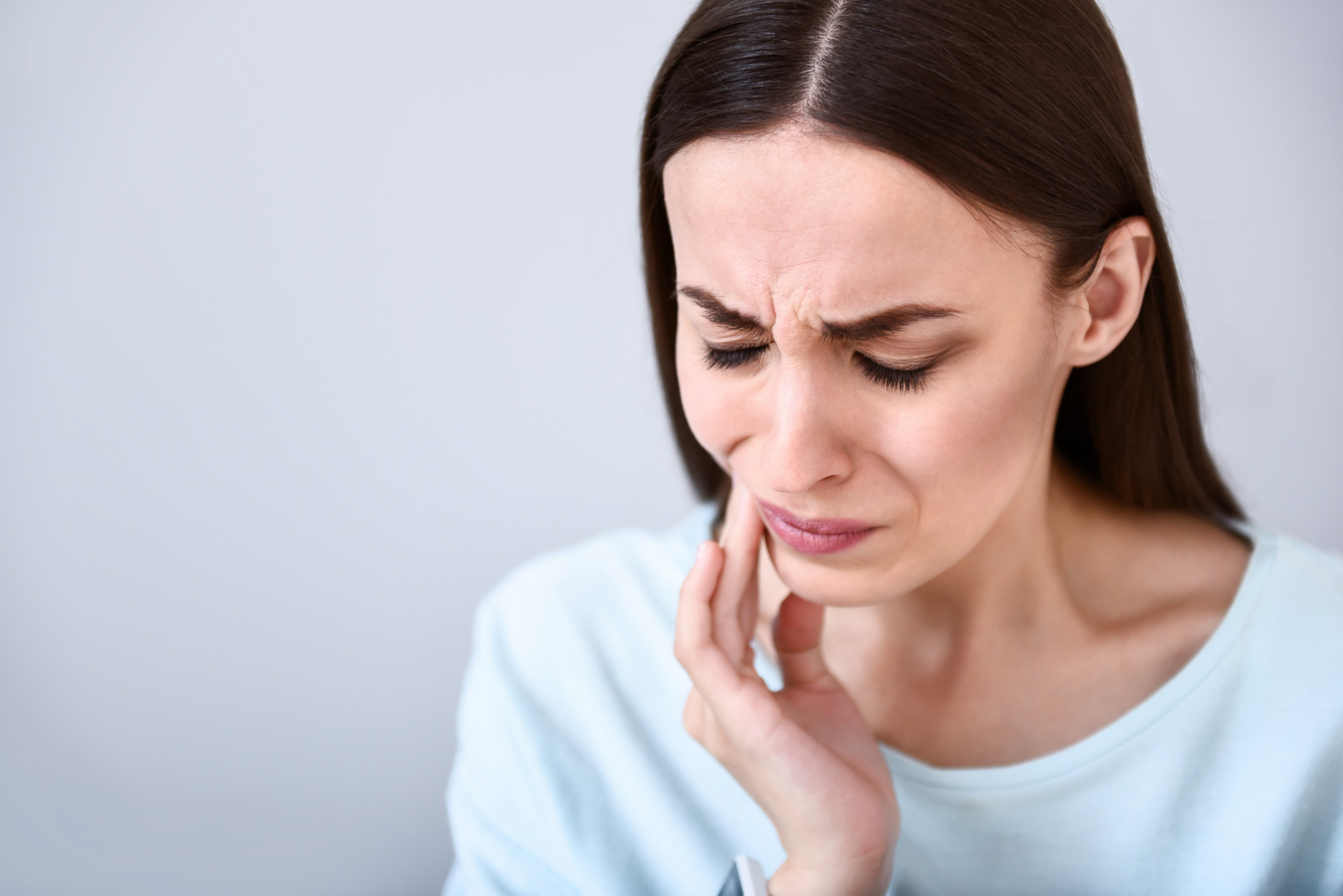
Serious problem. Cheerless sick woman touching her jaw and having a tooth ache while standing isolated on white background
Are you tired of the daily grind?
If you’re one of the many people who suffer from bruxism – whether while awake or while asleep – then you already know the toll that grinding your teeth every day can take on you, from pain to tooth damage.
However, there is a range of jaw clenching remedies that can help ease the symptoms associated with bruxism. Here are 5 of them…
1. Wear a Night Guard
Custom mouthguards can prevent your teeth from touching while you sleep. These devices are usually made by a dentist from hard plastic or acrylic and fit over your top teeth.
The biggest benefit is that is will protect all of your teeth from being worn down while you’re in dreamland. They are quite resistant to your daily biting, but they do need to be replaced periodically.
2. Exercise More Often
When you’re under a lot of stress, you tend to resort to habits such as grinding your teeth. However, one way to naturally reduce stress is by engaging in regular activity.
Guidelines dictate that adults should get at least 150 minutes of moderate exercise per week. Doing so can help lower levels of cortisol, which is the body’s stress hormone.
3. Get a Massage
Research has shown that getting a massage from a professional can help alleviate the stress that leads to daytime bruxism.
While you can get a massage that benefits all of the major muscles of your body, you can also get massage treatments more targeted to relaxing the affected head and neck muscles. For example, some massage therapists are specifically trained in TMJ massage, a condition that may be related to teeth grinding.
You can also gently massage your own facial muscles when you feel them getting too tense.
4. Take a Warm Bath
If much of your teeth-grinding happens at night, then you might benefit from soaking in a warm bath before you hit the sack to help relax you.
For added effect, you can hold a warm washcloth to your jaw area. You can also add Epsom salts to the bath, which have been shown to have additional calming properties and might even promote better sleep thanks to magnesium content.
5. Cut Down on Caffeine
Caffeine is a stimulant that can keep you alert longer when you need it. However, it may also a factor in a bruxism flare-up.
However, caffeine has a half-life of up to 6 hours, meaning it can still affect you physically even when you’re getting ready to call it quits for the night. Try to keep your caffeine intake moderate, and more importantly, not too close to bedtime.
6. Don’t Chew On Objects You’re Not Eating
Another habit that some people have is chewing on fingernails and pens. Doing so might make your jaw muscles more conditioned to clenching down, increasing bouts of bruxism.
Not only that, but the objects themselves that you’re chewing on might damage your teeth.
Follow These Jaw Clenching Remedies
From getting your dentist to make you an oral appliance to finding better ways to relax and reduce stress, you might be able to alleviate some of your bruxism symptoms.
Did you find this article on jaw clenching remedies helpful? If so, be sure to come back for more on health, lifestyle, and more.